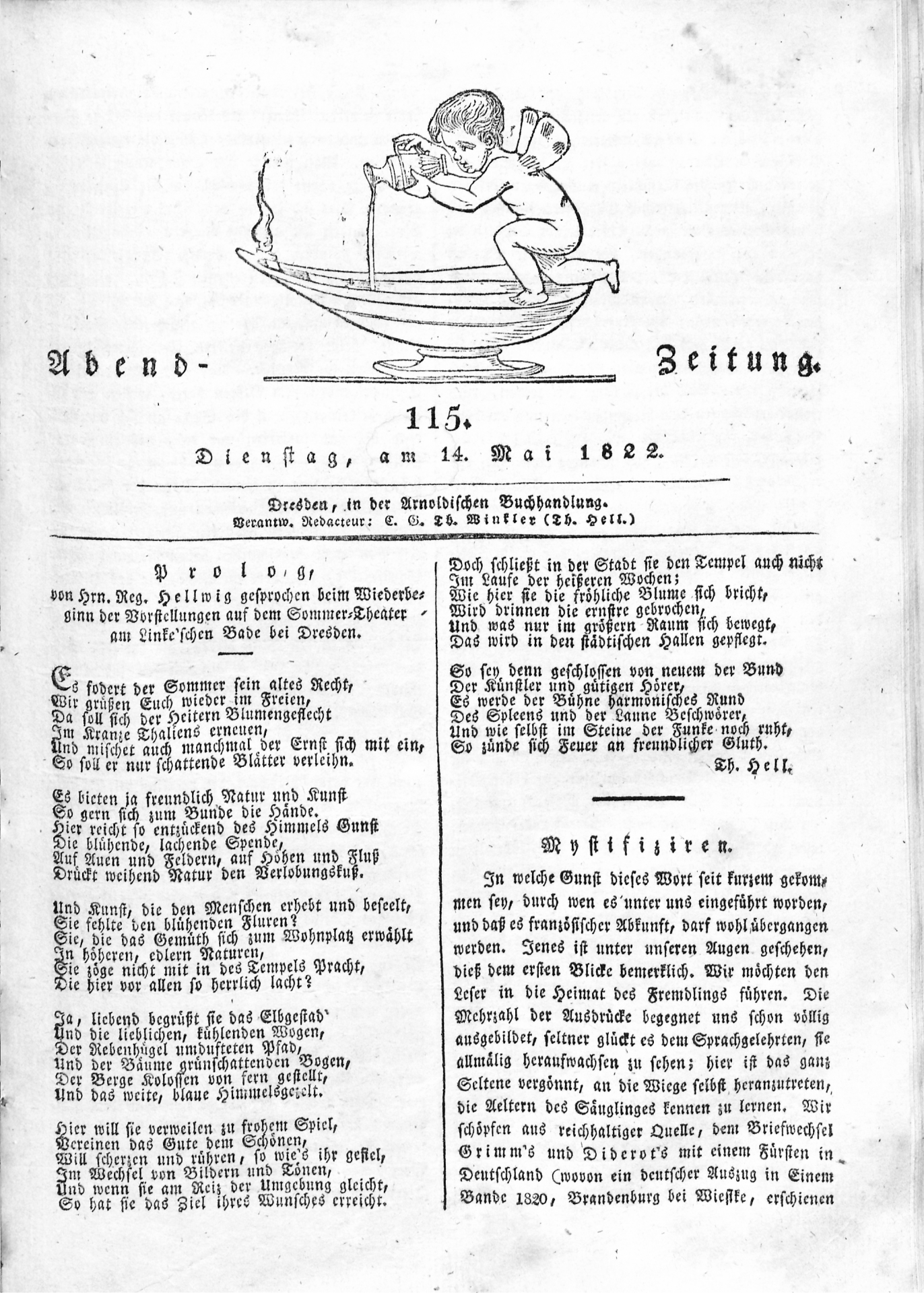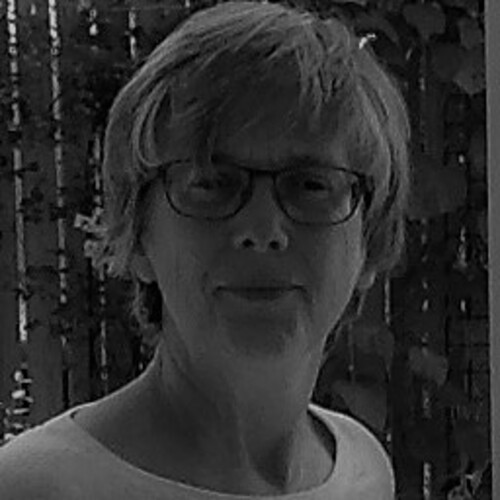Studied German and Art History (Bonn; Bielefeld); doctorate in 1998 (Bielefeld); Habilitation in 2008 (Siegen); 1998–2004 MA in FK/SFB 427 Media and Cultural Communication (Cologne/Bonn/Aachen); 2007–2010 DFG project From the ›Enlightenment‹ to ›Entertainment‹: Literary and Media Transformations in Germany between 1780 and 1840 (University of Bonn). Since 2010: Privatdozentin for Modern German Literature and General Literary Studies (University of Bonn, German Department, Comparative Literature and Cultural Studies). Since 2015: director of the ›Arbeitsstelle Internationales Kolleg‹ (International Programme) at the University of Bonn. Research and teaching focuses: modern German literature; media studies and media history; light fiction; the cultural history of entertainment.
My Research

The Dresdner Abendzeitung was founded by Karl Theodor Winkler and Friedrich Kind in 1817. Winkler edited the longstanding weekly with several supplements until 1843; he was a modern actor who made full use of many facets of cultural diversification: he was, among other things, the editor of a newspaper and anthologies, a poet, a translator and a promoter of cultural events (as part of the Dresden theatre scene and the ›Dresdner Liederkreis‹ literary society).
Abstract
›Backing up Your Friends‹. Self-enhancement and the Market
The early literary entertainment journal Dresdner Abendzeitung (1817 onwards) had great success with its strategy of connecting the circle of friends from Dresden’s local literary scene with journalistic networks. In paradigmatic fashion, entertainment was developed as the paradigm for new sociocultural intersections. The interlinking of local conviviality and superregional journalism thus also helped consolidate the actors’ own positions in controversial spheres of cultural policy.
Recent Publications
Art. ›Unterhaltungsliteratur‹, in: Vormärz-Handbuch. Hg. von Norbert O. Eke, Bielefeld 2020. S. 590-601.
zus. mit Anna Ananieva/Dorothea Böck: Auf der Schwelle zur Moderne: Szenarien von Unterhaltung zwischen 1780 und 1840. Vier Fallstudien. 2 Bde. Bielefeld 2015.
Famas Medium. Zur Theorie der Zeitung in Deutschland zwischen dem 17. und dem mittleren 19. Jahrhundert (Communicatio; 43). Berlin/Boston 2012.

